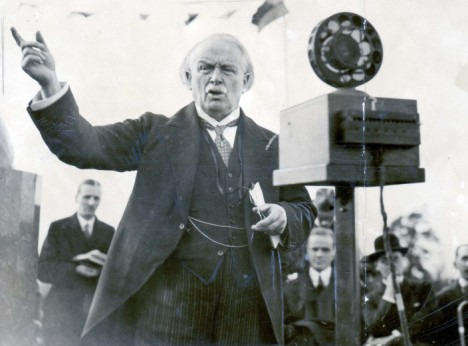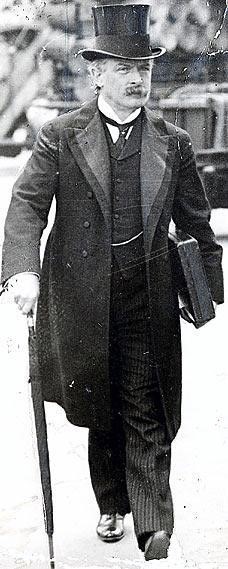
David Lloyd George – the Welshman Who Won the War
It is November 1918 and the reputation of David Lloyd George could not have been higher. His Conservative opposite number, Andrew Bonar Law, at one time said that he could be prime minister for life if he wanted to. Yet as we commemorate the one hundredth anniversary of the ending of the First World War, Lloyd George’s pivotal role is not receiving the recognition which people at the time certainly acknowledged it deserved.
Now Russell Deacon, Visiting Professor of Governance and Political History at the University of South Wales and Chair of the Lloyd George Society, has written an article for the online journalism site which sets out the context to explain why LG was so highly regarded in 1918.
The text of the article is below, or you can visit the website at: https://theconversation.com/david-lloyd-george-the-welshman-who-won-world-war-i-106081
***************************************************************************
In November 1918, David Lloyd George’s name was on everyone’s lips. He was the wartime prime minister who led the nation to eventual victory after four long years of bitter and bloody conflict. Yet despite this fact, a century later, as the war’s end is being commemorated worldwide, it would appear that there is very little recognition of the man. Compared to how Winston Churchill is praised the world over for his role in World War II, Lloyd George has a much lower profile.
A proud Welshman, Lloyd George originally made his name as a politician for his anti-war stance as an arch opponent of the Boer War. But by late 1914 he was acting as a human dynamo in transforming Britain and its empire into a modern state of industrialised warfare. He ensured that the war was financed and avoided economic ruin in his role as chancellor of the exchequer. Then, as minister of munitions, he helped supply the guns, tanks, aircraft and ammunition that kept Britain in the war. His introduction of the naval convoy system in April 1917 – which enabled ships to travel across the Atlantic protected by naval escort – helped win the war at sea and avoid a nation starving.
As prime minister after 1916, his fire and zeal were central to leading a coalition government that not only held the nation together but, in the process, modernised the core executive in Britain, and brought in a system of Whitehall government that is still used today.
Known as the “Welsh wizard”, because of this ability to keep the country unified, Lloyd George’s magic touch became apparent almost on a daily basis. He managed to balance domestic problems and the war with an almost unparalleled political mastery. Against a backdrop of developing civil war in Ireland and industrial and labour disputes on the home front, Lloyd George kept Britain fighting long enough for the arrival of the Americans, who were key to victory on the Western Front. While other nations faltered or buckled – including Austria-Hungary and the Ottoman Empire on the opposing side – he kept Britain and its empire steadfast and in the game.
The key to Lloyd George’s success was that he could be so adjustable and accommodating in what he set out to achieve. He sought to put the best people in charge, whether they be military or civilian, such as the secretary to the war cabinet Maurice Hankey, avoiding static hierarchies and burdensome bureaucracy, such as in his redevelopment and expansion of Britain’s armaments industry. This was something which contrasted him sharply with the military generals running the German War machine, where Erich Ludendorff and Paul von Hindenberg avoided wider engagement as both sought to dominate the war effort.
By the 1918 election, Lloyd George very much felt that it was even more important for the post-war nation to come together under him as prime minister in one united coalition. He also passionately supported a customs-free Europe and wanted Britain to play a central role in shaping Europe’s future, ensuring peace and prosperity. This he did – alongside US president Woodrow Wilson, Italian prime minister Vittorio Emanuele Orlando and French prime minister Georges Clemenceau – with the Treaty of Versailles the following year. It was at this peace summit that Lloyd George created a realistic rather than punitive peace with Germany – which was desired by France – or the distancing of themselves from an active role in Europe like the USA.
Not all of his ventures were so successful, however. Some of his work on new territories (protectorates) – Palestine and Iraq, for example – only worked to store up future problems. The same was true of his attempts to solve the Irish question, which were often done in a brutal and controversial fashion and have led to a century of conflict and division. It has also recently been uncovered that he met with Hitler in 1936 before going on to call him the “greatest living German”.
But whether you love him or loathe him, Lloyd George’s key role in fighting – and winning – World War I cannot easily be underestimated.
